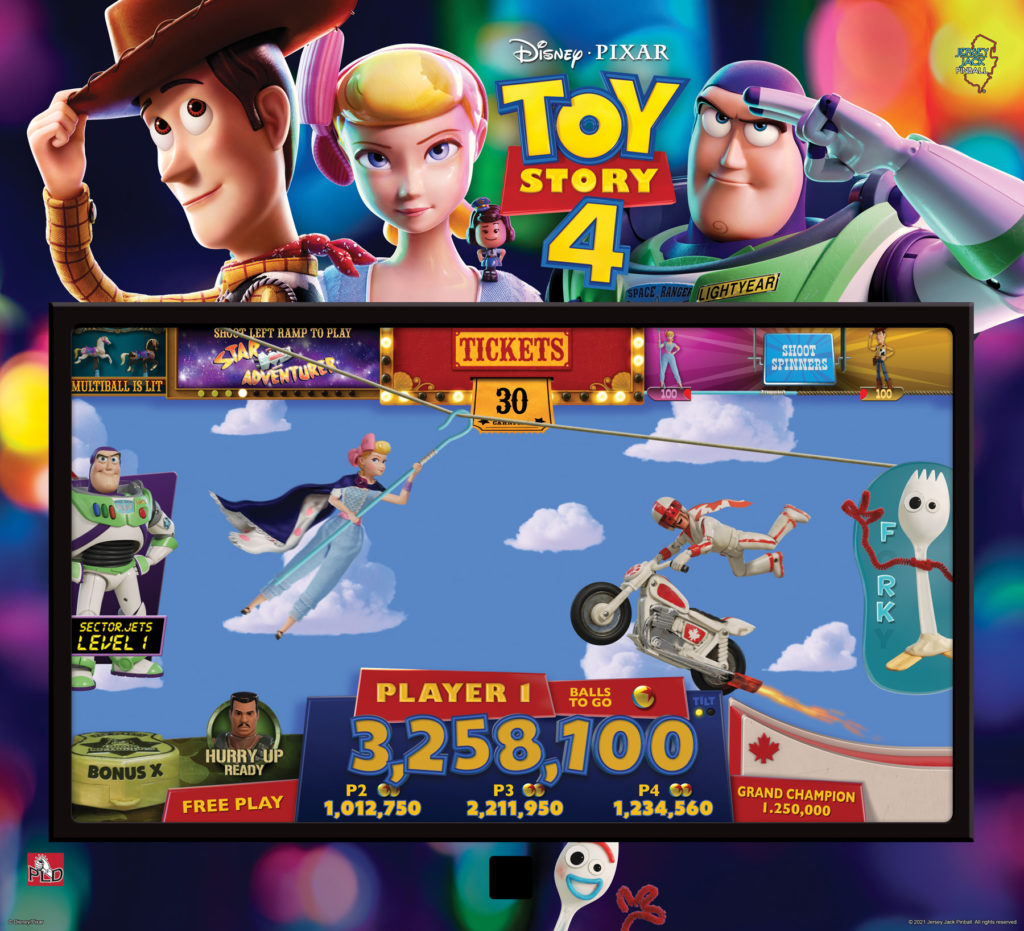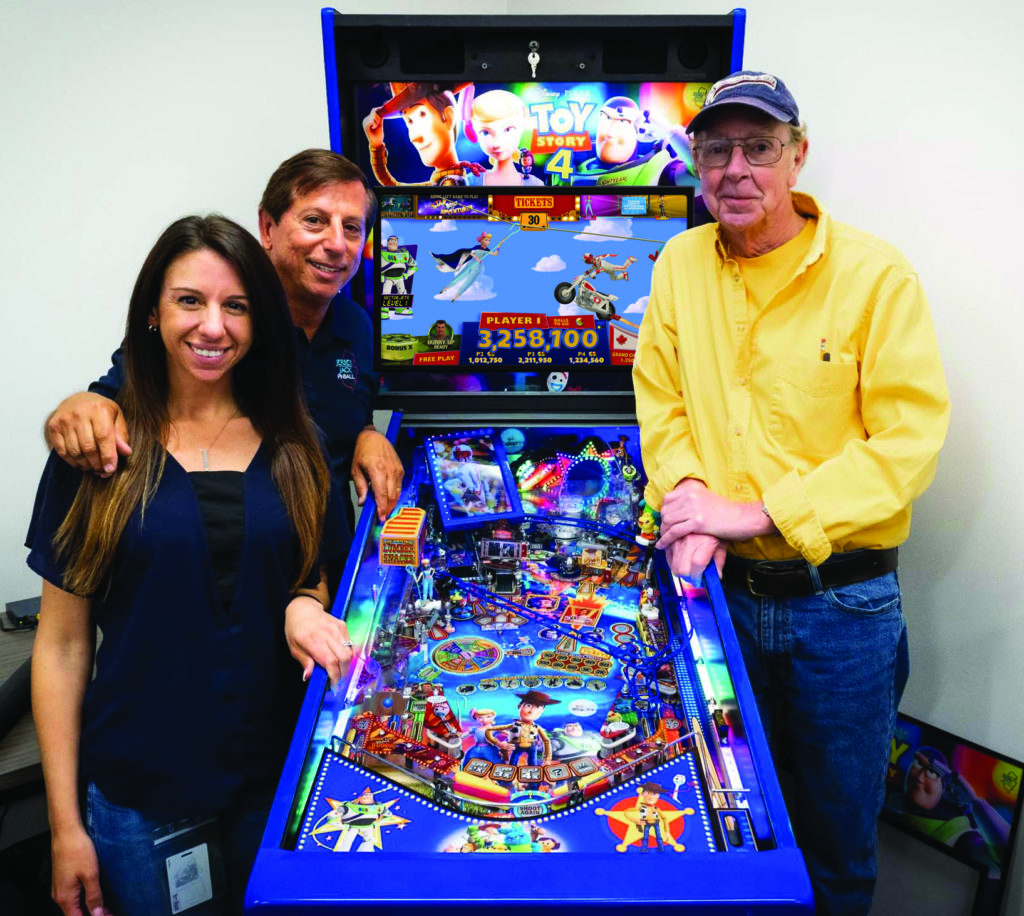
Jersey Jack Pinball
Taking it to Infinity and Beyond with Toy Story 4
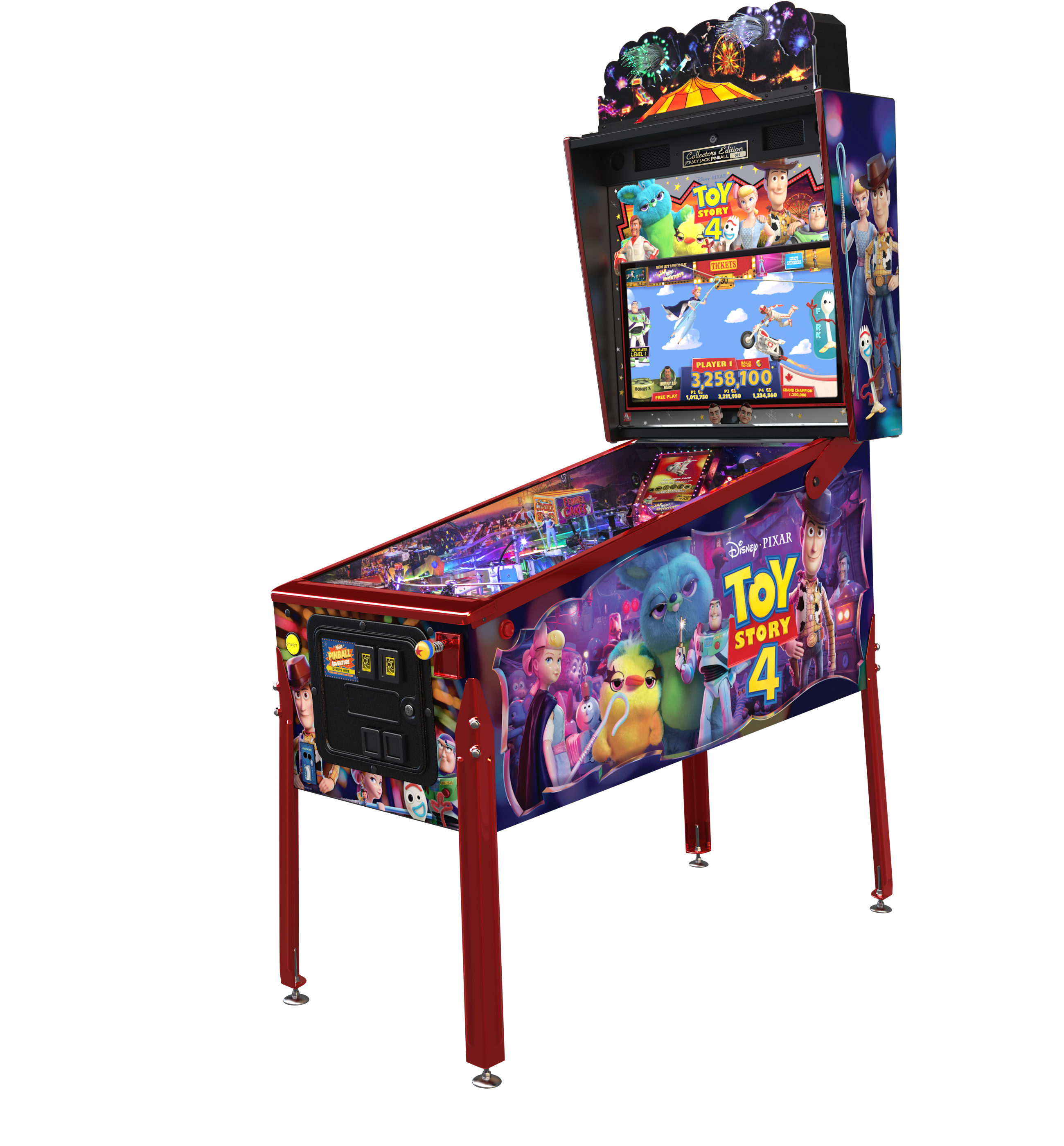
A central theme of a lot of pinball-related operator profiles in this magazine is how their passion for the game began when they were young. Just read some of the comments in this month’s Question of the Month feature for further proof. Interestingly, Jack Guarnieri recalled, “I didn’t play pinball as a kid.” Now 47 years into the industry, the Jersey Jack Pinball founder certainly has come a long way.
Guarnieri came into the business when he began working on games as a pinball mechanic – start date Sept. 2, 1975 – on a route that covered almost every college in the New York City area. The newbie tech opened up his first electromechanical pinball machine that day!
“Memories of my first day of kindergarten came back to me,” he said, remembering all the other kids crying when he didn’t. And so, he focused and got to work on the complex machine. At the end of that first day, Guarnieri didn’t want to come home from “school” either.
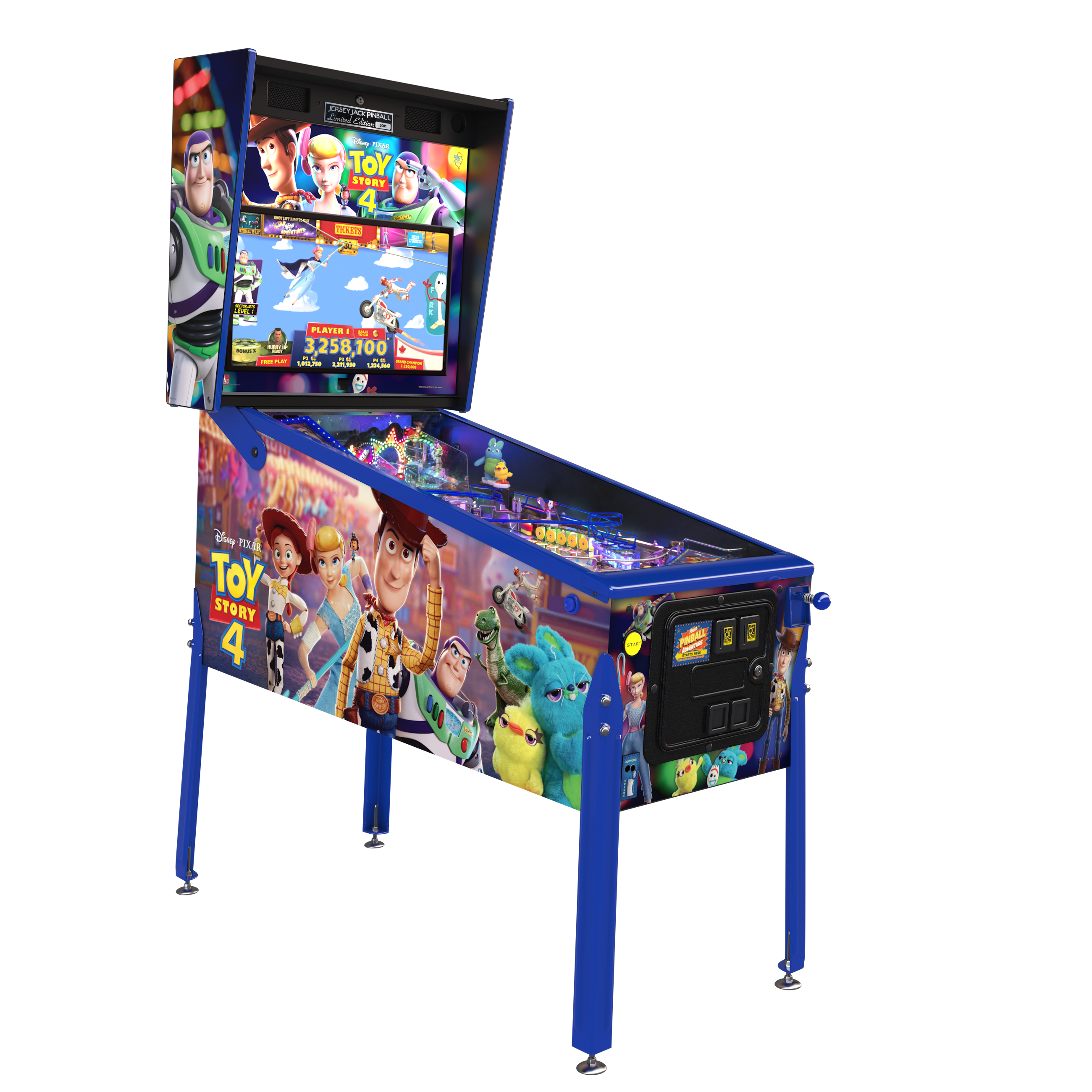
After many years of developing amusement centers, operating in New York and designing games, he started PinballSales.com in 1999. The company focused on selling commercial games to home game room customers with customer service that included delivery, in-home setup and after-sales support.
“It seemed by the time 2009/2010 came around, there were fewer and fewer games being sold to home customers,” Guarnieri said. “Those customers wanted to play something new that also had new technology. I also felt there were already so many games that catered to the adolescent male and I wanted to expand the player base.”
Even though he said games were being tailored for boys and young men, “Young people weren’t playing pinball,” he added. “It was just the static image on the backbox and the same old, same old. I wanted to change everything.”
Thus began Jersey Jack Pinball in 2011 with the idea to build Wizard of Oz, an IP that hadn’t before made its way to pinball, and it became the new factory’s first release in 2013.
“If an operator put it in a bar, every girl would be playing the game,” said Guarnieri, noting the concept had exactly the type of mass appeal he was looking to put into the world. It also had RGB LED lighting throughout (never before done in pinball), a 27” LCD backglass and LCD screens on the playfield itself. “It was a beautiful package of a game that everyone had to play at least once,” he said.
“Wizard of Oz was a packed game that put pinball on notice – bringing pinball into the next generation of playing,” added Ken Cromwell, the marketing and communications specialist for JJP who’s been with the company since April 2020.
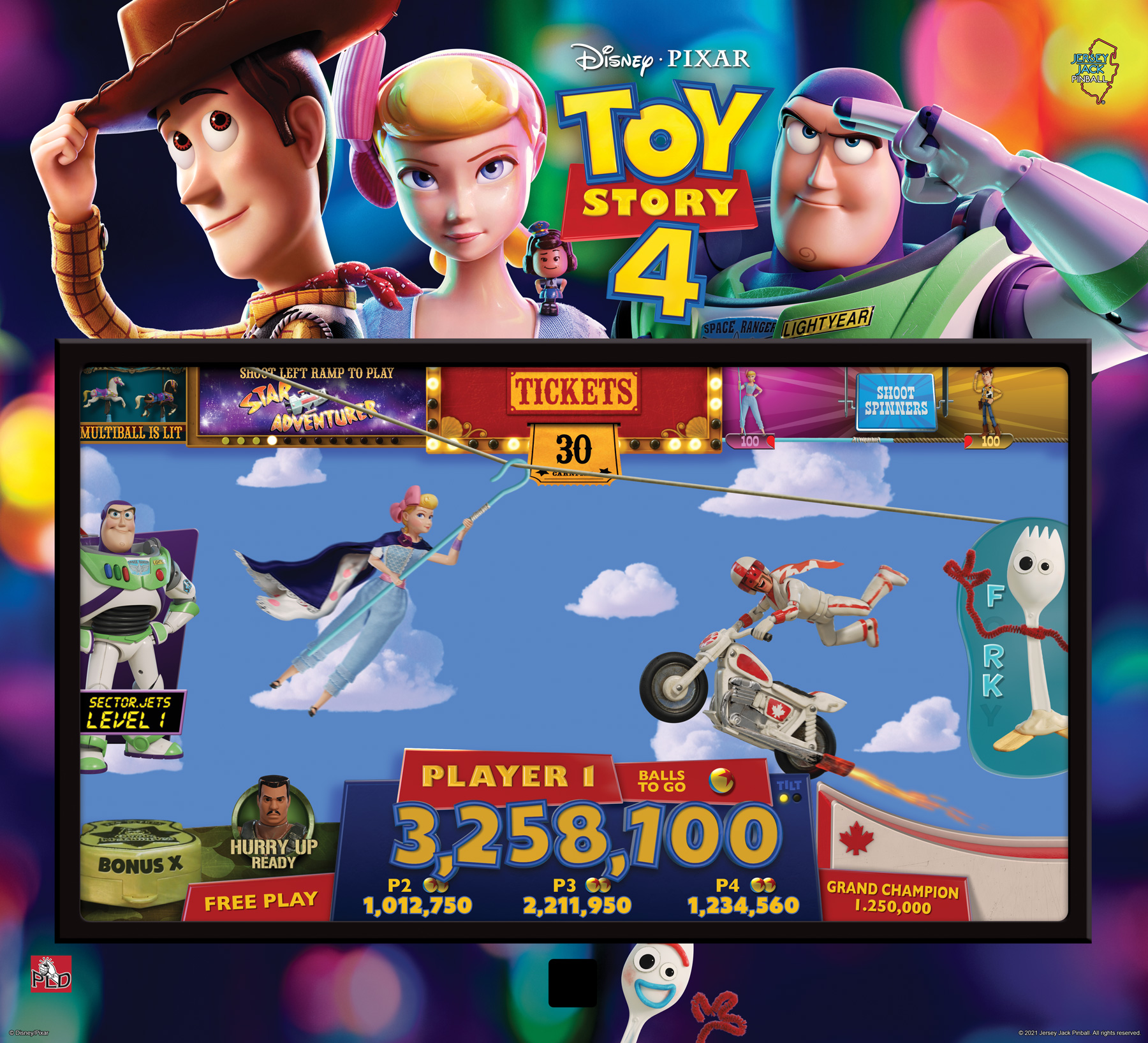
“It was groundbreaking, especially at the time.” Cromwell, a pinball player and collector since 2006, has bought and sold more than 100 pins in that timeframe. He quickly became a fan of Jersey Jack Pinball when they came on the scene. (Funny enough, the first pin he purchased was 1989’s Earthshaker from Williams, a Pat Lawlor-designed game like JJP’s latest, Toy Story 4, their Willy Wonka & The Chocolate Factory and Dialed In!.)
For Wizard of Oz, Guarnieri brought together a group of pinball veterans “who believed we could add more fun and innovation to the games,” he said.
“They were cautiously optimistic that we’d be successful creating a new game platform,” he said, adding people “left jobs and jumped onto my ship, and believed in what we were going to do – creating something exciting and different.” (By the way, Wizard of Oz was on display at the Smithsonian for two years.)
The company’s second release was The Hobbit (2016). An immersive game based on the film trilogy, it featured talking Smaug as well as the innovative lighting and visual components first introduced on Wizard of Oz.
The third release was JJP’s first and only original theme, the Pat Lawlor-created Dialed In! (2017). With disaster-based gameplay, JJP boasts it was the first-ever pinball machine to feature Bluetooth connectivity, a camera and other mobile device capabilities. All of the original assets were made in-house, down to the voiceovers.
Then came the Pirates of the Caribbean limited release in 2018. It was the first lead design for Eric Meunier, who also worked on Jersey Jack’s first three games.
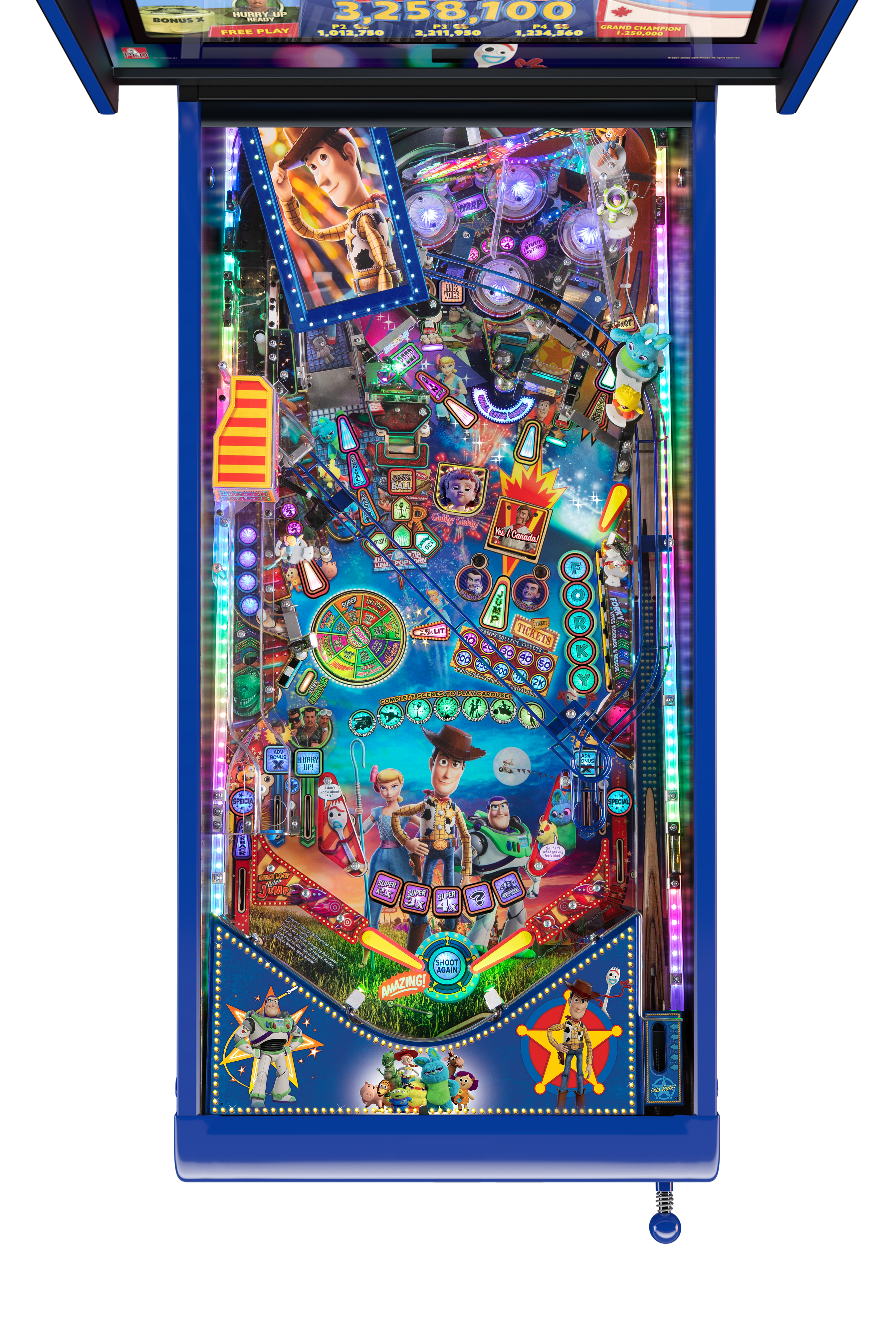
“It’s gained a lot of traction in the last few years,” Cromwell noted. “The collector’s editions are highly coveted. Recently the market seems to have gone out of control. Our games have really seen an increase on the secondary market.”
Following the release of a Yellow Brick Road edition of Wizard of Oz, JJP released another game based on an adored IP – Willy Wonka & The Chocolate Factory (2019). “It wasn’t the latest movie, but it’s a timeless classic,” Cromwell said, adding that it’s another JJP game that should have long-lasting appeal.
In 2020, Guns N’ Roses came, designed by Meunier and the rock band’s guitarist Slash. It was based on the wildly popular Not in This Lifetime Tour, which spanned 175 shows from 2016-19, earning the band well over half a billion dollars at the box office.
In June, Jersey Jack released Toy Story 4, a machine that was years in the making. For fans, it was well worth the wait. The Disney/Pixar-licensed game sold out the 1,000 units of its Collector’s Edition in just a few minutes with about 100 in direct sales and 900 sold to distribution. The games are shipping now.
Home & Commercial
While about 80% of Jersey Jack’s sales go to the home market, Guarnieri said, “I see more operators buying our games. They check a lot of boxes for an operator.” He said Toy Story 4 is earning very well on location and they’ve had re-orders from some operators since its release. (5,000 Limited Edition models were also available.)
There are social media posts from around the world, he said, of people getting JJP games and putting them on location or playing them at home. “Every time we do a new game, we get a lot of new customers who’ve never bought a pinball,” Guarnieri noted. “It brings different people to the table who want pinball machines.” And he adds, using unique theming and licenses has worked to widen the player base.
And so has continuing to modernize the game with connectivity. Guns N’ Roses was the first JJP game that came wireless, allowing players to get online and track scores. “What you’re going to see is the evolution of that process,” Cromwell said. “Bar owners would be able to set up prizes to give away if certain accomplishments are achieved at their location.”
The Scorbit platform, which has been launched for the entire Jersey Jack library (aside from Pirates of the Caribbean, which is in beta testing now), brings players around the world together to compete and gets better with each update.
Jersey Jack (the man, not the company) said he’s ready to continue what they’ve built – “bringing fun in the shape of a pinball machine to more and more people around the world.”
Expect yet another new game from Jersey Jack Pinball in the next nine or so months, said Guarnieri, who anticipates releasing two games next year. (There are three games currently “in development” at the Elk Grove Village factory.)
While Guarnieri is humble about his pinball-making success, his marketing man Ken Cromwell is fast to tout the exciting future of the company and games that are in the pipeline.
“There’s just something special and magical about Jersey Jack pinball games,” he said, adding that their “easy to play, difficult to master” mantra attracts all kinds of players.
“Our goal is to keep providing quality games with quality service and open up the door to hobbyists, collectors, professionals and newbies. There’s no better pinball machine in the world.”
Check out those pins and watch for new developments at www.jerseyjackpinball.com.

